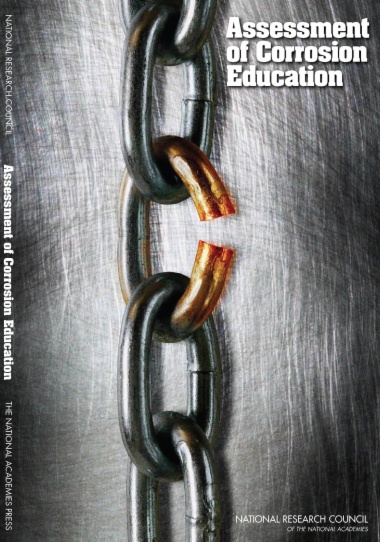

The threat from the degradation of materials in the engineered products that drive our economy, keep our citizenry healthy, and keep us safe from terrorism and belligerent threats has been well documented over the years. And yet little effort appears to have been made to apply the nation's engineering community to developing a better understanding of corrosion and the mitigation of its effects.
The engineering workforce must have a solid understanding of the physical and chemical bases of corrosion, as well as an understanding of the engineering issues surrounding corrosion and corrosion abatement. Nonetheless, corrosion engineering is not a required course in the curriculum of most bachelor degree programs in MSE and related engineering fields, and in many programs, the subject is not even available. As a result, most bachelor-level graduates of materials- and design-related programs have an inadequate background in corrosion engineering principles and practices.
To combat this problem, the book makes a number of short- and long-term recommendations to industry and government agencies, educational institutions, and communities to increase education and awareness, and ultimately give the incoming workforce the knowledge they need.